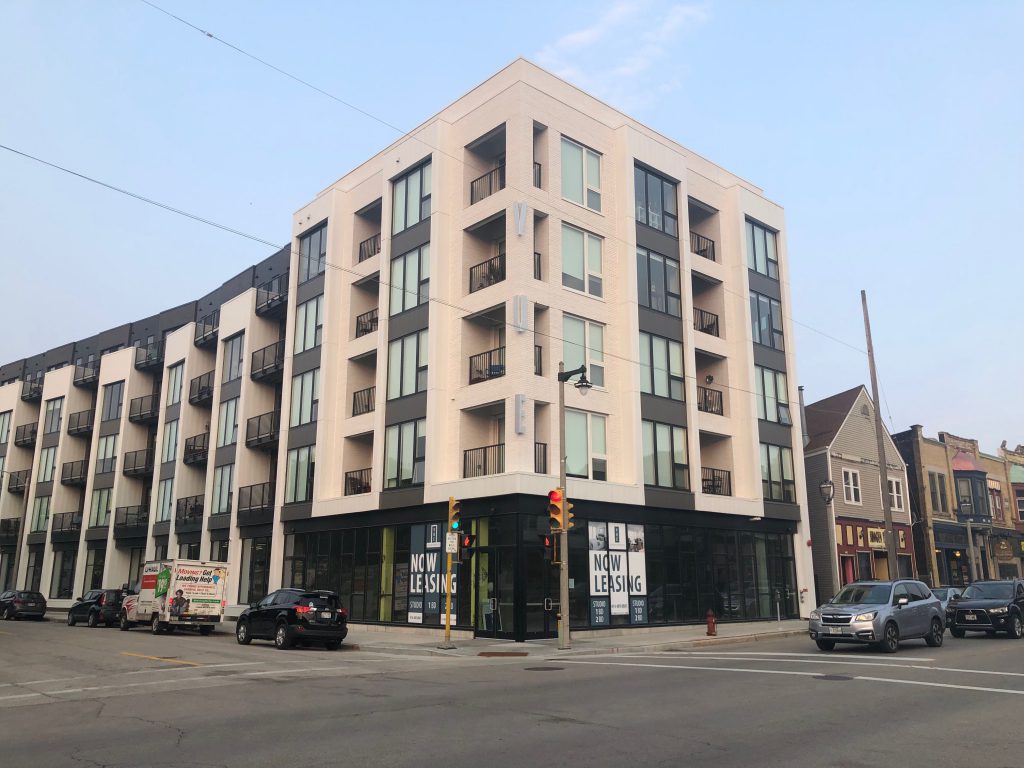Will the Cost of Renting Drop in the COVID-19 Economy?
All the city news you can use.
Want more links to read? Visit The Overhead Wire and signup. Every day at The Overhead Wire we sort through over 1,500 news items about cities and share the best ones with our email list. At the end of the week, we take some of the most popular stories and share them with Urban Milwaukee readers. They are national (or international) links, sometimes entertaining and sometimes absurd, but hopefully useful.
Atlanta air quality still suffering: Amid the COVID-19 pandemic, cities around the world are seeing bluer skies and reduced emissions. Atlanta Georgia is seeing reduced emissions as well but air quality sensors are still registering at levels similar to this time last year, potentially because of the cooler evening weather. It’s unclear what the lasting impact will be from stay at home orders in the state but retail travel is down over 50% and proponents for teleworking will get a good test case to hone their arguments. (Sean Keenan | Curbed Atlanta)
New Zealand first to fund pop up bike lanes, widened sidewalks: Cities around the world are keeping residents indoors as a safety precaution for COVID-19 with the caveat that they are allowed to get fresh air, access to nature, and exercise if they follow physical distancing protocols. To address the issue of more people outside with limited space, New Zealand has become the first country to provide funding to make tactical urbanism and active transportation a national policy. Leading the charge is Transportation Minister Julie Anne Genter, a former transportation planner. (Carlton Reid | Forbes)
Rents, income will fall in coming economy: Housing prices and rents have been overheating the last few years as many have struggled to find homes. More than a third of homes in the United States are rented but economists expect those prices to fall as the economy weakens and more people double up in housing to save money or go homeless. AirBnB hosts are also considering putting thier units on the long term rental market as travel dries up and while many residents in cities will stay, there’s a belief that some will reconsider whether they want to buy in the suburbs as interest rates are at all time lows. (Dennis Romero | NBC News)
Connecting big data and urbanism: In a recent paper, University of Southern California professor Geoff Boeing argues that raw data has no inherent value and that in order to create something legible by the public, data must be compressed, organized and displayed in a valuable way. Using open street data and a python program, he shows how using existing street networks and building footprints can lay the ground work for informal settlements to formalize street networks without interrupting residents lives. (Belén Maiztegui | ArchDaily)
Quote of the Week
Because of the reduction in car traffic, we will be closing off a number of streets so that bicyclists and pedestrians can spread out and take in fresh air safely on Oakland streets, free of cars.
-Oakland Mayor Libby Schaaf in Curbed SF announcing several streets will be closed to through traffic as the city opens up 74 miles of safe streets.
This week on the podcast, we’re back at TRB in January chatting with Professor David Levinson about the problems with academic journals and his book the 30 Minute City.
Want more links to read? Visit The Overhead Wire and signup. (http://dtrnsfr.us/2iA8Yas)
If you think stories like this are important, become a member of Urban Milwaukee and help support real, independent journalism. Plus you get some cool added benefits.
Urban Reads
-
How Traffic Noise Impacts Children’s Brains
 Jul 1st, 2024 by Jeff Wood
Jul 1st, 2024 by Jeff Wood
-
Number of Super Commuters is Rising
 Jun 22nd, 2024 by Jeff Wood
Jun 22nd, 2024 by Jeff Wood
-
Why Has the Walkable City Been Villainized?
 Jun 9th, 2024 by Jeff Wood
Jun 9th, 2024 by Jeff Wood





















